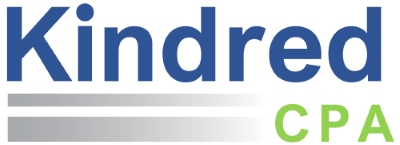An identity protection personal identification number (IP PIN) is a six digit number that prevents someone else from filing a tax return using your Social…
 Different types of contributions require different types of recordkeeping.
Different types of contributions require different types of recordkeeping.
If you want to deduct charitable contributions, you need to substantiate those deductions with good records. Here are the requirements for different types of contributions:
Cash Contributions
This includes donations made using all forms of cash and cash equivalents – cash, checks, electronic transfer, online payments, debit cards, credit cards, payroll deduction, or even gift cards. There are different rules depending on the amount of the cash contribution:
For contributions of less than $250, a bank or credit card statement, receipt, or even a canceled check can be sufficient documentation.
For cash contributions of more than $250, the organization must provide you with a “contemporaneous written acknowledgement” of your contribution. This acknowledgement must be written, include the date and amount contributed, and indicate whether you received any goods or services as a result of your contribution. If you receive something of value in return for your donation, the acknowledgement must provide the value of that benefit. “Contemporaneous” means the organization must provide documentation on or before the date you file your tax return for the year of the contribution, including extensions.
In determining the amount of your contribution for purposes of these rules, don’t combine separate contributions. For instance, if you make a weekly contribution to your church of less than $250, each payment is treated separately. The same rule goes for charitable contributions made through payroll deduction.
Non-Cash Contributions
The substantiation requirements for non-cash contributions also differ depending on the amount, but unlike cash contributions, you should combine all your donations for the year in determining which of these requirements applies:
Less than $250 – you should have a receipt from the charitable organization indicating:
- the name and address of the organization
- the date and location of the charitable contribution
- a description of the property or donated security – if it’s impractical to obtain a receipt from the charitable organization (such as donated clothing or household items), include a description of the condition of the item(s) and how you calculated the fair market value
At least $250 up to $500 – same information as above, and if you made more than one contribution of at least $250, you must have either a separate acknowledgement for each contribution or one acknowledgement that reflects your total contributions. The acknowledgement from the charitable organization needs to also include the same information as cash contributions above $250 (see second bullet point above).
Over $500 up to $5,000 – same as above, and you’ll need to complete Form 8293 (instructions can be found here)
Over $5,000 – same as above, along with obtaining a qualified written appraisal of the donated property from a qualified appraiser. This independent appraisal is not required for contributions of qualified vehicles for which you obtain a contemporaneous written acknowledgement, certain inventory, publicly traded securities, or certain intellectual property. See Deductions of More Than $5,000 in IRS Publication 561 for more information. In addition, the Form 8293 requires additional acknowledgement from the charitable organization and the appraiser.
Non-cash charitable contributions made by a business
If you’re donating business property, you may end up without any tax benefit from that contribution. The depreciation and gain rules governing business property contributions often negate any tax benefit.
Questions? Visit with your Kindred tax professional for more information about your personal tax situation.



